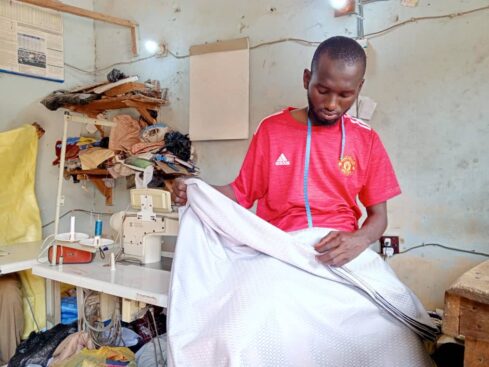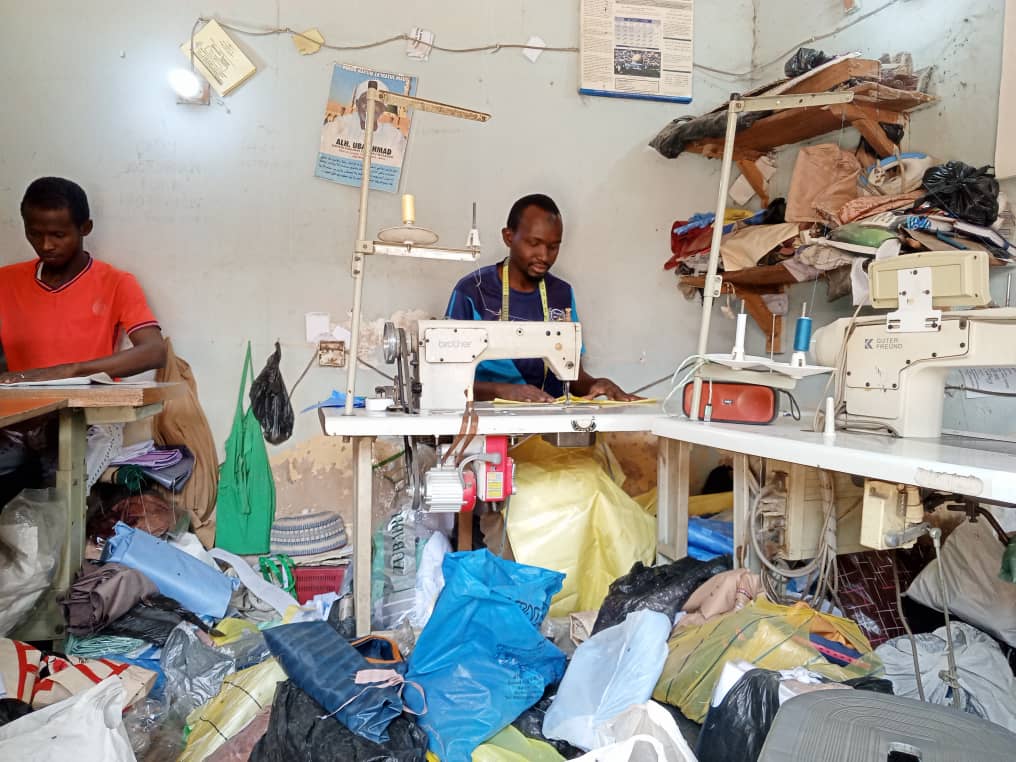Eid-ul-Fitr, marking the end of Ramadan, is a time for Muslims to gather in prayers, share meals, and exchange gifts. It’s also a joyous occasion celebrated with new clothes.
However, with inflation soaring and the cost of everyday goods significantly increasing, this year’s celebration is tinged with concerns due to the current economic hardship.
Traditionally, during Ramadan and especially towards the end of fasting, people take new fabrics to tailors in anticipation of wearing them for the Eid-ul-Fitr celebration which falls on April 9 or 10 this year, depending on whether Ramadan is 29 or 30.
Daily Trust spoke to a cross section of tailors and residents of Kano and Jigawa states during the week to gauge the ‘Sallah mood’ this year compared to the previous years.
EXCLUSIVE: FG subsidises hajj fares with N90bn
FG, Kano, Kebbi, Kogi subsidise hajj fares
At Abba Umar Muhammad’s shop in Koki Quarters of Kano State, the spirit of Sallah was alive. His machine hummed as he carefully knitted two pieces of a new clothing material.
He told Daily Trust that his hope for this year was as strong as last year. He initially thought patronage would be low, but looking at the number of clothes he was already working on, he realized this year would be good too.
“I’ve stopped taking new clothing because I already have a lot to work on, especially from the last three days,” he said.
“I thought it wouldn’t get up to this amount, because everything is expensive in the market and people don’t have money. But look at it now, clothes are piling up just like previous years,” he further remarked.
Similarly, Idris Adamu, a tailor with years of experience in Hadejia Local Government Area of Jigawa State, said even though people were careful with their spending, “Eid is Eid,” and people still want to look their best.
Halliru Umar Muhammad also told our correspondent he was already overwhelmed with new clothing materials he had collected so far, and was trying all his best not to disappoint any of his customers.
He said he had sewn enough clothes and did not think he could finish all of them before Eid. However, he would strategize and ensure everyone gets at least one outfit to wear on the day.
“Some people brought over five sets, some six, while some brought two or three. So you can see, not everybody will get their clothes before Eid,” he stated.

However, Rabi’u Sulaiman, a professional unisex tailor, disclosed that there was a lower turnover this season compared to the previous years.
He explained that even though he had stopped collecting fresh jobs, the amount of clothes he sewed last year was far more than this year.
“People want to wear new clothes, but now food is expensive,” he said, referring to hardship that has significantly impacted this year’s sewing.
“We thought with the payment of this month’s (March) salary, people would bring more fabrics, but there’s still a low turnout, especially from civil servants,” he added.
While interacting with some people about their preparations, Musa Ibrahim Umar, a business owner in Hadejia, said, “We might have to cut back on other things, but new clothes for Sallah are important. It’s a way to celebrate and show gratitude.”
“I already started my preparation almost two months before Ramadan because I know Sallah clothes are important,” Musa added.
“Even though the fabrics are expensive now, we have to do it no matter what. I’ve already made clothes for myself, my wife, and my little daughter, but I’ve spent a lot.”
However, Salisu, a trader in Kofar Wambai Market in Kano State, told Daily Trust he had not sewn any Sallah clothes.
He said, “I can’t say I don’t have the money to buy clothes, but I don’t have time for that. I spend most of my time in the market looking for money to feed my family.
“I don’t bother myself yet because I’ve already confirmed with my tailor who works in Dorayi area (Kano) that I can still get it before the time. He’s been my friend and has never disappointed me. So I may still get it before then.”

 Join Daily Trust WhatsApp Community For Quick Access To News and Happenings Around You.
Join Daily Trust WhatsApp Community For Quick Access To News and Happenings Around You.


